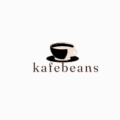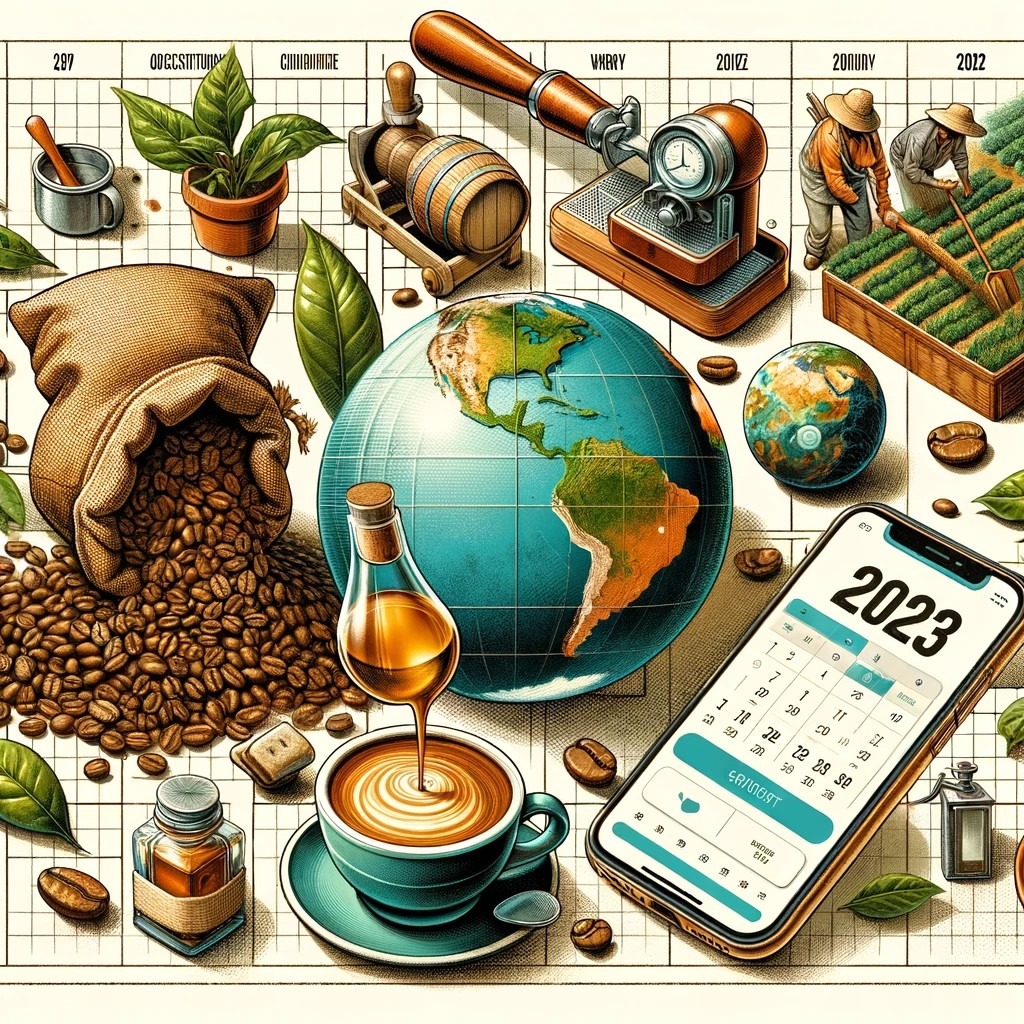As of 2023, the coffee industry has seen several key developments and trends that are shaping its current state and future direction. Here are some of the most significant takeaways and 2023 coffee summary
2023 Coffee Summary:
Focus on Sustainability
There’s a growing emphasis on sustainability within the coffee industry. This includes efforts to reduce the carbon footprint of coffee production, implementing more eco-friendly practices, and addressing issues like soil health and water usage. Consumers are increasingly aware of the environmental impact of their coffee choices, leading to a rise in demand for sustainably sourced beans
In 2023, companies have been implementing various initiatives to reduce their environmental impact. For instance, a major coffee chain like Starbucks set ambitious goals to become carbon neutral, investing in renewable energy and engaging in reforestation projects in coffee-growing regions.
Nespresso expanded its recycling program, making it easier for consumers to recycle coffee pods, and introduced fully compostable coffee capsules. Additionally, water conservation has become a priority, with some producers adopting water-saving processing methods, such as dry processing of coffee beans, which uses less water compared to traditional wet processing.
Sustainable sourcing is another key area of focus. Many companies are increasingly sourcing coffee beans from farms that adhere to sustainable agriculture practices, as seen with the popularity of Rainforest Alliance or UTZ-certified beans.
Efforts to reduce the environmental impact of transportation are also evident, with companies like Starbucks shifting to electric or hybrid vehicles for local deliveries.
Educational initiatives for farmers on sustainable practices are being spearheaded by companies like Starbucks and Peet’s Coffee, providing resources and support to improve both crop yields and environmental impact. The move towards energy-efficient retail spaces, with LED lighting and water-saving devices, and investment in state-of-the-art, environmentally friendly roasting technology, further underscores the industry’s commitment to sustainability. These efforts by leading companies showcase a deep recognition of the importance of sustainability for the long-term viability of the coffee industry and the health of global ecosystems.
Impact of Climate Change on the Coffee Industry
In 2023, the impact of climate change on the coffee industry became increasingly evident, with several regions experiencing conditions that threatened coffee production. Brazil, the world’s largest coffee producer, where unusual weather patterns, including severe droughts followed by frost, led to a substantial decrease in coffee yields.
These climatic challenges not only affected the quantity but also the quality of the coffee beans, leading to global concerns about supply and price fluctuations.
Similarly, in Central America, countries like Honduras and Guatemala, known for their high-quality Arabica beans, have faced increased incidences of coffee rust disease in the past, exacerbated by higher temperatures and humidity levels attributed to climate change. It continues to be a problem and is being addressed by the industry.
The repercussions of these changes were felt across the global coffee market. For instance, in Colombia, another major coffee producer, heavy and unpredictable rainfall disrupted the harvesting schedule, resulting in lower production delays in shipments, and fluctuation in prices.
These climatic adversities underscored the need for adaptive measures in the coffee industry. In response, some companies and organizations started investing more in research and development of resilient coffee plant varieties and sustainable farming practices. Efforts were also seen in the implementation of innovative farming techniques designed to mitigate the effects of climate change, such as shade-grown coffee, which not only helps in temperature regulation but also preserves biodiversity. There is an urgent need for the coffee industry to adapt to the changing climate to ensure the sustainability of coffee production and the livelihoods of millions of farmers worldwide.
Rise in Specialty Coffee
The rise of specialty coffee continued to gain momentum in 2023, marked by growing consumer demand for high-quality, artisanal coffee experiences. This trend was evident in the proliferation of specialty coffee shops and roasteries across the globe, catering to an increasingly discerning coffee audience.
Specialty coffee events, like the World Barista Championship and the Specialty Coffee Expo, saw record attendance in 2023, reflecting this heightened interest. These events became platforms for showcasing innovation in coffee brewing techniques, bean sourcing, and flavor experimentation.
Additionally, coffee subscription services offering specialty beans from various regions around the world gained popularity, allowing consumers to explore a diverse range of coffee flavors from the comfort of their homes.
Specifically, in 2023, notable coffee roasters like Blue Bottle and Intelligentsia continued to expand their global presence, opening new locations in emerging coffee markets in Asia and Europe. These expansions were not just about serving coffee; they also focused on educating consumers about the nuances of specialty coffee, from the importance of the bean’s origin to the intricacies of the brewing process.
Furthermore, the rise of direct trade practices, where roasters work directly with coffee farmers, gained traction. This not only ensured the quality of the beans but also promoted more sustainable and equitable business practices in the coffee supply chain.
The global Specialty Coffee market size was valued at a whopping USD 40 billion and is expected to expand at a CAGR of 55.25%! for the next few years!!
The year 2023 marked a clear shift in the coffee industry, with specialty coffee moving from a niche market to a significant influence on mainstream coffee culture, driven by a collective pursuit of quality, sustainability, and a deeper appreciation for the coffee brewing art.
Growth of Plant-Based and Health-Conscious Options

In 2023, the coffee industry witnessed significant growth in plant-based and health-conscious options, catering to an increasingly health-aware and environmentally-conscious consumer base.
Major coffee chains, including Starbucks and Costa Coffee, expanded their range of plant-based milk alternatives, incorporating oat milk, almond milk, and soy milk into their menus. This shift was not only a response to the growing demand for dairy-free options but also aligned with the sustainability goals of these companies, as plant-based milk generally has a lower environmental footprint compared to cow’s milk.
In 2023, the coffee industry introduced several health-infused coffee drinks, reflecting a growing trend towards wellness and innovation in beverage offerings.
One notable example was Starbucks’ introduction of the Oleato line, a new range of beverages infused with extra virgin olive oil. This concept aimed to capitalize on the health benefits associated with olive oil, such as its “good” fats, which are believed to be beneficial for caloric intake, metabolism, and digestion.
Additionally, 2023 saw the expansion of many coffee drinks infused with vitamins, minerals, and even probiotics, aiming to offer added health benefits to consumers.
Similarly, independent coffee brands introduced a range of functional coffee products, such as CBD-infused coffee for stress relief and antioxidant-rich coffee blends. The trend also extended to coffee-adjacent products, with the emergence of coffee-flavored energy bars and snacks that are low in sugar and high in protein.
These developments in 2023 reflect a broader trend in the food and beverage industry, where health and wellness have become key drivers of product innovation and consumer choice
Increasing Ethical and Transparent Practices
In 2023, the coffee industry made notable advancements in ethical and transparent practices, with various initiatives and company efforts highlighting this shift.
Certification programs like Fairtrade International and Rainforest Alliance played a significant role in promoting transparency in the coffee trade. These programs provide standardized verification schemes that assure specific sustainable practices are employed during coffee production.
Technology solutions have also been instrumental in improving transparency in the coffee supply chain. The use of blockchain technology, for instance, has emerged as a powerful tool for amplifying transparency within the industry. This digital ledger system allows all transactions along the supply chain to be logged securely and permanently.
Advanced analytical tools such as remote sensing and GIS have become particularly useful at the origin level, a key factor often obscured due to a lack of accessibility or infrastructure.
Coffee Collective – In their 2023 Transparency Report, they focused primarily on their transparency index, highlighting steps taken to improve transparency across their organization. The report emphasized their commitment to sustainability, exploring new ways to reduce waste, minimize carbon footprint, and positively impact the planet. Coffee Collective’s efforts are a testament to the industry’s growing emphasis on transparent and ethical practices.
These initiatives reflect a broader trend in the coffee industry towards more ethical and transparent practices, driven by consumer demand for responsibly sourced products and an increased awareness of the impacts of coffee production on farmers and the environment.
Top M&A news of 2023
In 2023, the coffee industry saw significant consolidation through various acquisitions and mergers, signaling a continued trend toward growth in specialty coffee. Notable acquisitions included:
- Sucafina Acquires Sustainable Harvest: Sucafina, a global coffee company, acquired US green coffee trader Sustainable Harvest. Sustainable Harvest, known for its focus on sustainable coffee sourcing and relationship coffee model, is now part of Sucafina North America, operating under Sucafina Specialty.
- Chobani Buys La Colombe Coffee for $900 Million: Chobani, primarily known for its yogurt products, made a major move into the coffee industry by acquiring La Colombe Coffee for $900 million. This acquisition followed Chobani founder and CEO Hamdi Ulukaya’s significant investment in La Colombe in 2015.
- NKG Acquires Nordic Approach and Tropiq: Neumann Kaffee Gruppe (NKG), a global coffee trading group, acquired Nordic Approach and Tropiq, companies focused on high-quality, traceable specialty coffees. This acquisition is part of NKG’s strategy to strengthen its presence in the specialty coffee segment.
- General Atlantic Acquires Joe & the Juice: New York firm General Atlantic acquired the quick-service coffee, juice, and sandwich chain Joe & the Juice for $641 million. This acquisition reflects the growing trend of combining coffee with other fast-service food and beverage options.
- FairWave Acquires Anodyne Coffee Roasting Co.: FairWave, a collective of specialty coffee brands, acquired Milwaukee’s Anodyne Coffee Roasting Co. This move is part of FairWave’s strategy to create a network of coffee brands that maintain their unique identities while leveraging shared resources.
- Kaldi’s Coffee and Dancing Goats Coffee Merge: This merger brought together two roasting and retail companies that have been instrumental in introducing specialty coffee and “Third Wave” coffee concepts in their respective regions.
These mergers and acquisitions reflect the coffee industry’s ongoing shift towards specialty coffee, the value of innovation, and the strategic focus on expanding market presence and product offerings. The trend towards consolidation is increasingly defining the industry’s landscape, creating opportunities for growth and innovation while also posing potential challenges for market competition and diversity.
Reference and Related Articles
- https://www.rainforest-alliance.org/business/certification/our-certification-program-in-2023-innovation-and-constant-improvement/
- https://www.thestreet.com/electric-vehicles/starbucks-makes-a-move-ev-drivers-will-love
- https://blog.greenwellfarms.com/episode-8-update-on-coffee-leaf-rust/
- https://www.cnn.com/2023/02/21/business/starbucks-oleato/index.html
- https://www.discovermagazine.com/lifestyle/12-best-cbd-coffee-in-2023
- https://www.binance.com/en/feed/post/614138

